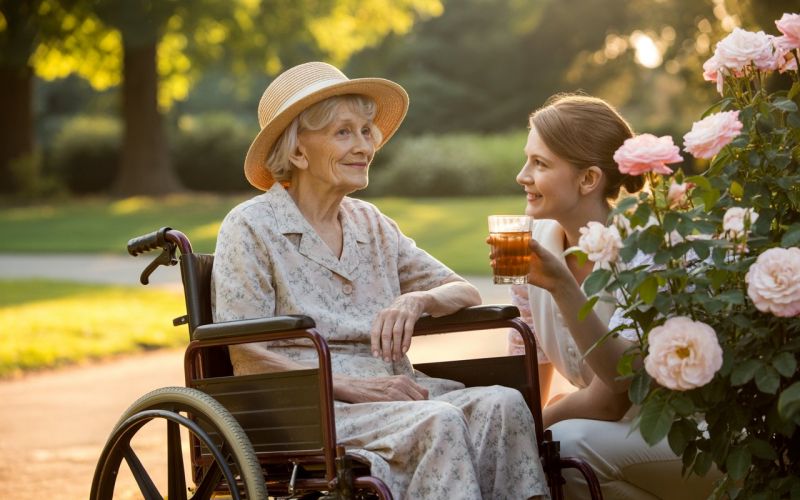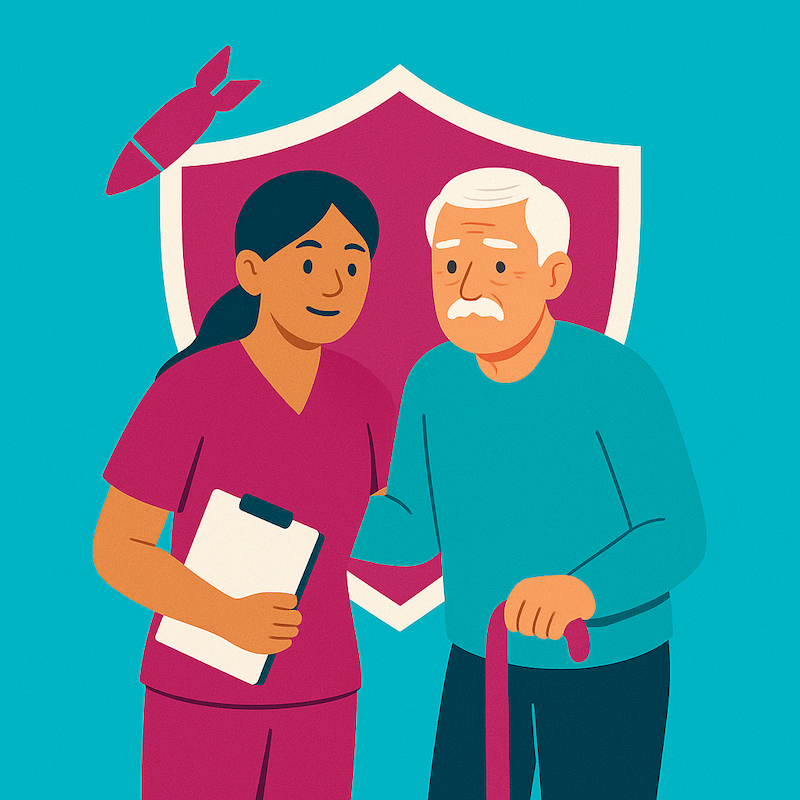Hydration and Seniors: The Importance of Drinking Enough Water in Warmer Weather
The iSavta Team | 04.08.2025

When the weather gets warmer, one of the most important things to remember—especially for older adults—is to drink enough water. While it may seem like a simple habit, staying hydrated can be a challenge for many seniors. As a caregiver, you play a vital role in making sure your employer drinks the right amount of fluids each day.
Why Seniors Are More Prone to Dehydration
Older adults are more likely to get dehydrated for several reasons:
-
Reduced thirst sensation – As people age, their sense of thirst becomes weaker. They may not feel thirsty even when their body needs water.
-
Medication effects – Some medicines, like diuretics (water pills), increase fluid loss. Others may cause side effects like dry mouth.
-
Mobility issues – Seniors with limited mobility may avoid drinking too much water to reduce bathroom trips.
-
Health conditions – Certain illnesses, like kidney problems or diabetes, can make dehydration more likely.
Because of these factors, seniors may already be dehydrated before they even realize it.
Signs of Dehydration in Seniors
Recognizing dehydration early is key to avoiding serious complications. Watch out for:
-
Dry mouth or sticky saliva
-
Headaches or dizziness
-
Unusually dark-colored urine or less frequent urination
-
Confusion or trouble concentrating
-
Tiredness or weakness
In more severe cases, dehydration can lead to low blood pressure, rapid heartbeat, or hospitalization.
How Much Water Should Seniors Drink?
While everyone’s needs are different, most older adults should aim for about 6–8 cups (1.5–2 liters) of fluids daily. This includes water, herbal tea, clear soups, and even water-rich foods like watermelon or cucumbers.
In hot weather, seniors may need a little more than usual, especially if they are active or sweating.
Tips for Encouraging Seniors to Drink More Water
1. Offer Small Amounts Regularly
Instead of asking your senior to drink a large glass of water at once, encourage them to take small sips throughout the day. Keep a cup or bottle nearby at all times.
2. Add Flavor Without Sugar
If plain water feels boring, add a slice of lemon, cucumber, or a few fresh mint leaves. This makes drinking water more enjoyable without adding unnecessary sugar.
3. Serve Hydrating Foods
Fruits like oranges, melons, grapes, and vegetables like cucumbers and tomatoes have high water content. Including these in meals or snacks boosts hydration.
4. Make it Routine
Link drinking water to daily activities—after waking up, before meals, or after taking medicine. Repetition helps turn it into a habit.
5. Monitor Intake
If your employer has memory issues, you may need to track how much they drink. You can use a marked water bottle or keep a simple chart.
What to Avoid
-
Too much caffeine or alcohol – These can increase fluid loss. Herbal teas or decaf options are better choices.
-
Sugary drinks – Sweet sodas or juices can raise blood sugar and are not the best source of hydration.
-
Overhydration – While rare, drinking too much water in a short time can be harmful for those with certain heart or kidney conditions. Always follow medical advice.
Caregiver’s Role in Hydration
As a caregiver, you are in the best position to observe and prevent dehydration. Here’s how:
-
Remind your employer to drink regularly, even if they say they are not thirsty.
-
Adjust water intake based on activity level and weather conditions.
-
Be aware of any changes in urine color or bathroom habits.
-
Inform the family or doctor if you notice signs of dehydration.
Staying Hydrated = Staying Healthy
Proper hydration helps regulate body temperature, supports digestion, keeps joints healthy, and improves mood and energy levels. For seniors, drinking enough water can also help prevent urinary tract infections, constipation, and falls caused by dizziness.
By making hydration part of your senior’s daily routine—especially during warmer months—you can help them stay comfortable, alert, and healthy.











